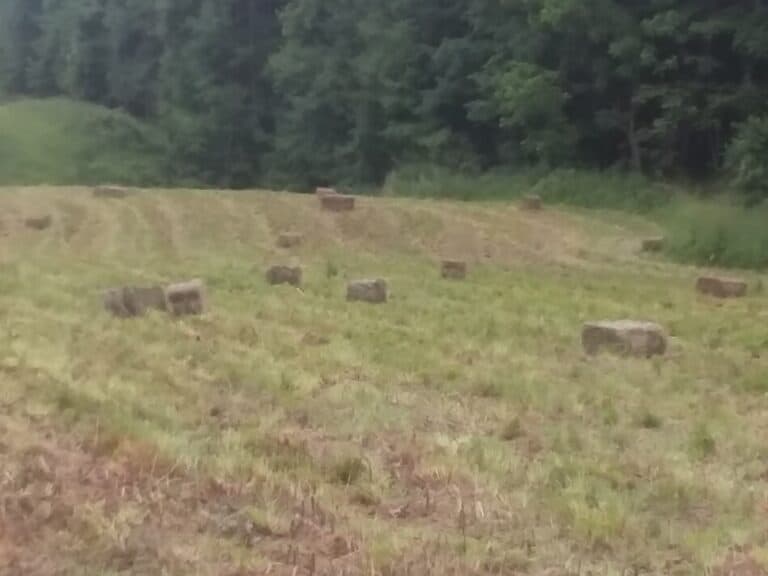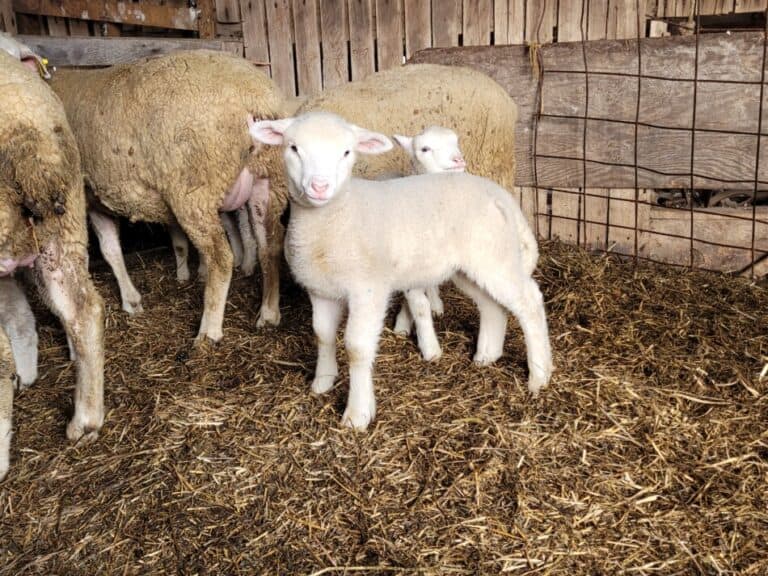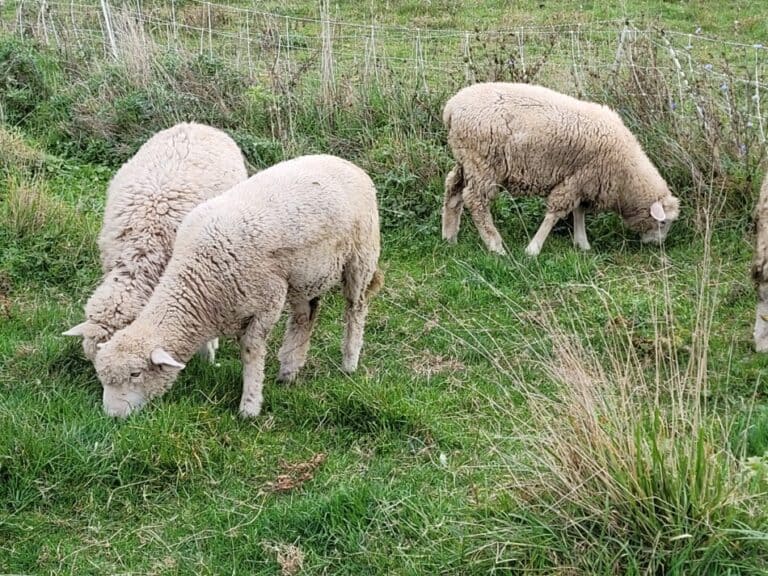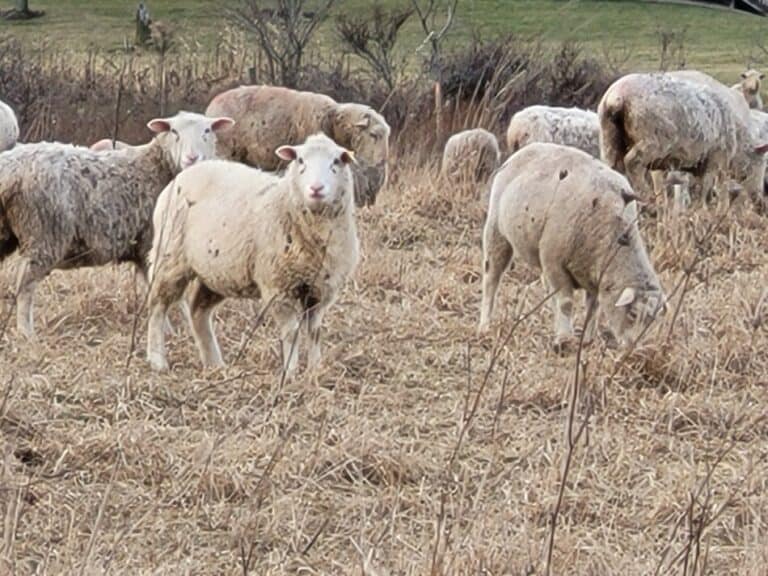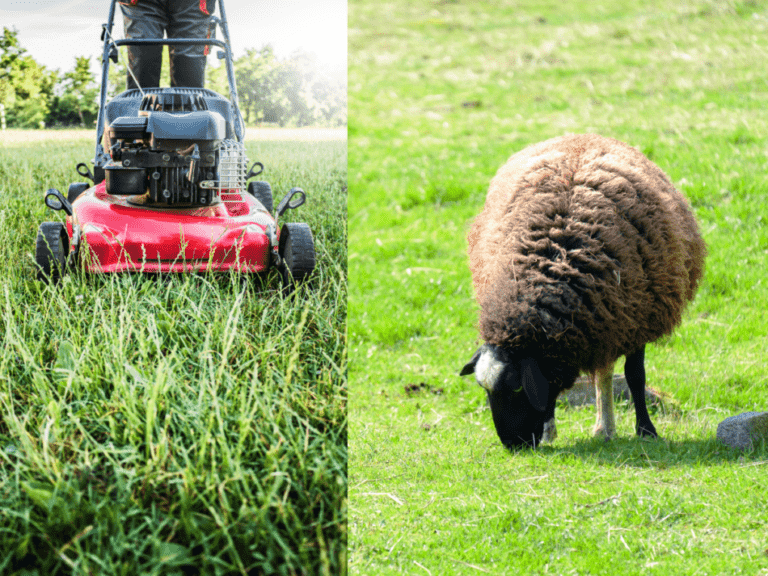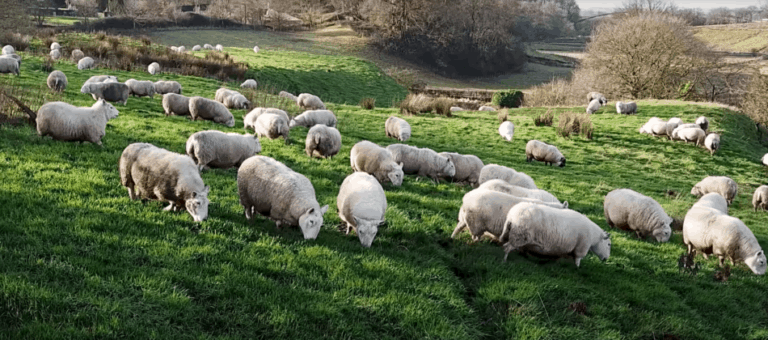How To Tell If Your Sheep Are Stressed
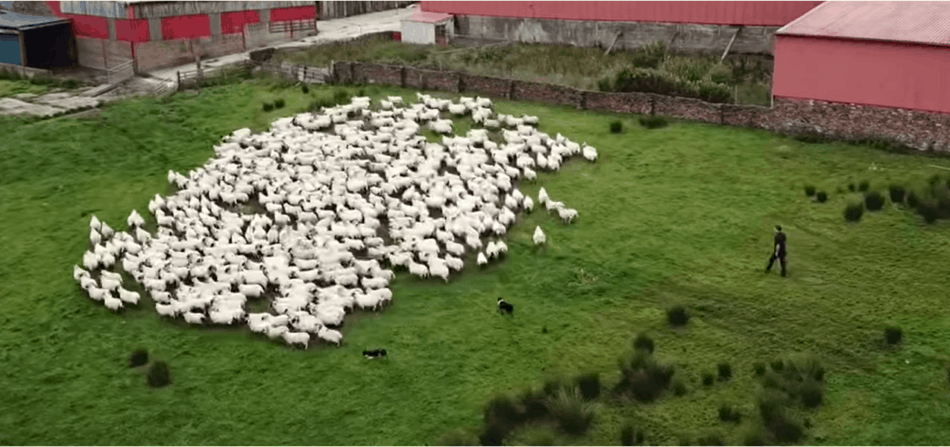
Sheep can be stressed for a number of reasons including weather, isolation, immediate threat (like a predator) or something specific to the individual sheep, such as a health.
So, how do you know? If your sheep are stressed, what does that look like?
Stressed sheep may pace, pant, repeatedly call to other sheep, bunch up or run away, depending upon the source of the stress. Individually stressed sheep will have a hard time keeping up with the group and will spend less time (possibly none) chewing their cud.
Depending upon the stress, the sheep are either faced with an external stress, like predation or weather, or an internal stress like sickness or parasites.
Is Raising Lamb For Meat Worth It? will show you how to make a budget for your freezer lambs.
Stressed sheep act differently than a calm flock
Stressed sheep will be acting differently than sheep that are calm and comfortable. This is the key to knowing if your sheep are happy or stressed.
You need to spend time with your sheep when they are happy and calm, so that you know when something is “off” and likely to cause problems for your flock.
I know that this can sound too basic, but observation is the cornerstone of animal husbandry. You must spend time with the flock to know what they are like when they are normal, so you have a baseline behavior to compare to.
Different sheep in different situations react differently, no surprise there! But the part folks tend to not realize is this: you need to know normal to recognize abnormal. This means get out there with those sheep!
How To Tell When Sheep Are Happy gives you some specific things to look for in your flock.
Externally stressed sheep tend to bunch up or run
If your sheep are bunched up and staring at something, they are stressed. So far, it’s nothing too severe or they would be running away, but whatever the thing is they are staring at, it definitely has their attention.
Bunching up is a normal reaction for sheep, and, to be honest, a normal over reaction for sheep. Move first, figure it out later seems to be how sheep handle novelty.
Sheep will run from perceived threats and real threats
If the sheep are really concerned, they will run away from the threat. Once again, the threat can be real or just seemingly real, like the hot air balloon, the sheep will react the same, either way.
One of the more common “real” threats to sheep is predation, which can be from wildlife or from domestic animals, specifically off leash dogs.
Sheep, specifically lambs, are also a target for predation by air, but that mostly during lambing season. Normally the bigger birds overhead, does not spook the flock.
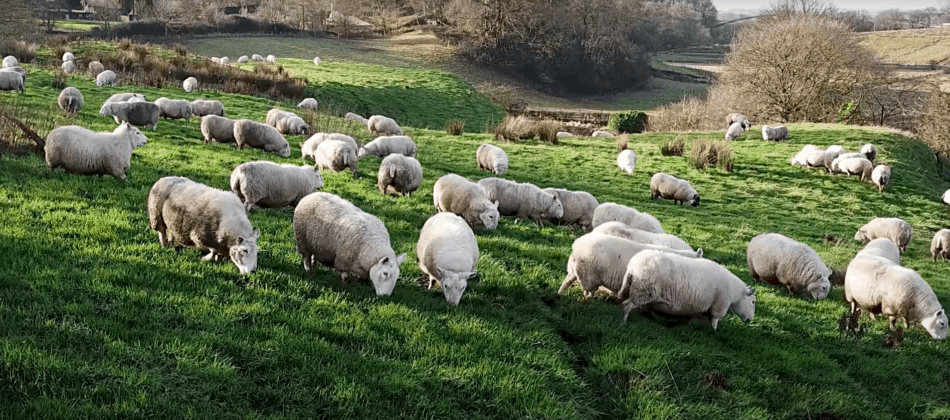
Isolation is very stressful for sheep
An additional reason for stress in sheep is isolation. Sheep are very uncomfortable with being alone, it’s hardwired in. These sheep will call to other sheep and pace the fence or pen, looking to rejoin the flock.
Keeping a sheep by itself will add stress to an other wise healthy sheep. This stress will not reduce until the sheep has buddies to hang out with.
This is why, unless you are keeping the sheep separate for medical reasons, sheep should always be kept with other sheep. The segregated sheep will benefit from being able to see other sheep, even if they can’t be together.
Weather stress in sheep looks different than predation stress
If your sheep are stressed because of weather, what you will see is different than if they are stressed by a predator. Weather stressed sheep usually hunker down and wait for the weather conditions to improve.
Excessive heat is stressful to sheep
If the sheep are stressed from the heat, you’ll see:
- very minimal movement throughout the day
- no grazing
- under extreme heat stress, sheep will pant with an open mouth
In the heat, sheep will park it and not move (unless the shade moves) for the entire day. When it cools off, they’ll get up and graze and drink. Sheep do not like the heat.
Signs And Management Of Heat Stress In Sheep is an excellent article from Agriculture Victoria. Consider reading if you are looking for more specifics on heat stress in sheep and what you can do about it.
Cold + rain is stressful to sheep
Mature sheep tend to handle other weather conditions, specifically cold, pretty well. Lambs are much more cold sensitive than adults, do to body size.
The only thing that really bothers sheep is the cold days (in the 30’s) that are also rainy and windy. Sheep are built for cold weather, but that doesn’t mean they like it when there’s rain, too! Both wet and cold, they’re not happy campers.
You might think snow is the biggest challenge for sheep, but not so! With their insulating wool, sheep are great in the snow, as long as they have a wind break. It has to be truly frigid for the cold to be hard for sheep to handle.
Internally stressed sheep reduce their movements
Sheep that are internally stressed, this would be stressors like sickness or parasites, tend to reduce their movements. Kind of like you sitting on the couch and staring when you are sick, you just don’t feel like getting up.
These sheep have a hard time keeping up with the rest of the flock and are noticeably behind anytime the flock moves position, which happens frequently during the day.
A sick sheep may not be chewing her cud when the rest of the flock is chewing away and relaxing. Not chewing the cud is always a reason for a second look in your sheep.
A happy, relaxed sheep is either eating or relaxing and chewing her cud. If she’s not doing either of those things, something is up and you need to investigate.
Stress in sheep can be internally caused
Internal stressors can cause problems with one sheep or all of them in the flock. These are usually things like health concerns or parasite loads that are getting to be too much for the individual sheep to handle.
You could have just one sheep who has a parasite overload or you could have the whole flock with out of control parasites, you never know until you start looking into the problem.
This is the sort of situation where management and genetics work together. Good genetics are hardier, but good genetics with terrible flock management will still have problems. Both need to work together for happy sheep.
Stress in sheep can be externally caused
External causes of stress can also increase the stress in sheep. By external I mean that without the stress, the sheep would be happy and calm.
External causes of stress would include things like:
- extreme weather
- predation
- isolation
- poor stockmanship
External stressors will affect the entire flock
External stressors in sheep will affect the entire flock at once and it will be easy to see that the sheep are behaving in an abnormal manner during the stressful event.
For instance: in really hot weather, the sheep will sit around in the shade and do nothing all day, no going to get water, no grazing. That’s weird.
The reason they are sitting, rather than grazing, is because they need it to be cooler before they start moving around too much, to avoid overheating. This is really no surprise, people don’t like to be out all day in the sun either!
But, if the rest of the flock is grazing and one sheep is left behind, still sitting, something is up.
Since the rest of the ewes are have resumed normal activities, the ewe that is still in the “it’s way too hot” position is having more stress than the rest. She needs looked at once the temperature cools down, even if it’s almost dark.
Predation is an external stress on sheep
The other obvious stress of sheep that is externally caused is predation.
This can be from actual predators or things that the sheep interpret as predators, like unusual wildlife that catches them off guard or something like a hot air balloon landing in the pasture. (Yes, we have actually had that happen.)
